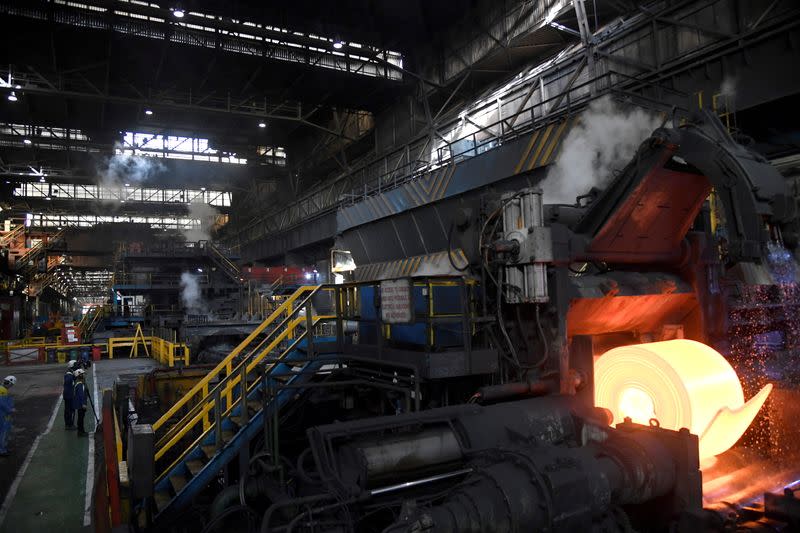British power prices hamper steel sector efforts to cut emissions -report
LONDON (Reuters) - Higher power prices in Britain than in other European countries will weigh on efforts by the steel sector to reduce its carbon emissions, an industry group said on Tuesday in a report calling for network cost cuts.
British steel producers pay 61% more for electricity than rivals in Germany and 51% more than in France, trade association UK Steel said in a report.
The global steel industry is one of the world's biggest CO2 emitters, accounting for 11% of emissions, according to the Global Energy Monitor.
Among other recommendations, the UK steel report said the British government should implement power network cost reductions similar to those in Germany and France in order to help the industry reduce its CO2 impact.
"In the last year, the gap between electricity prices paid by UK and European steelmakers has almost doubled," said Gareth Stace, director general of the group.
"The sector will struggle to decarbonise, investing in new, highly electricity intensive equipment, if UK power prices remain this far above those of our competitors."
Converting Britain's coal-powered blast furnaces to hydrogen-based steelmaking could increase electricity use by 250%, while converting them to electric arc methods would increase it by 150%, the report said.
At current power prices it would cost almost 300 million pounds ($398 million) a year more to run a hydrogen-based steel sector in Britain than in Germany.
($1 = 0.7544 pounds)
(Reporting by Eric Onstad; Editing by Alexander Smith)

 Yahoo Finance
Yahoo Finance 


